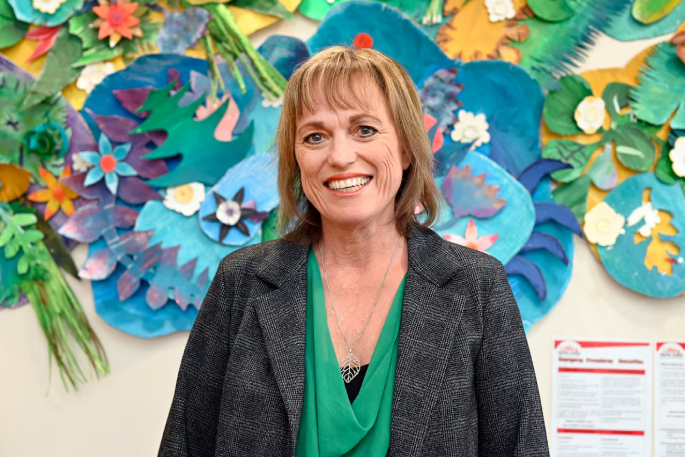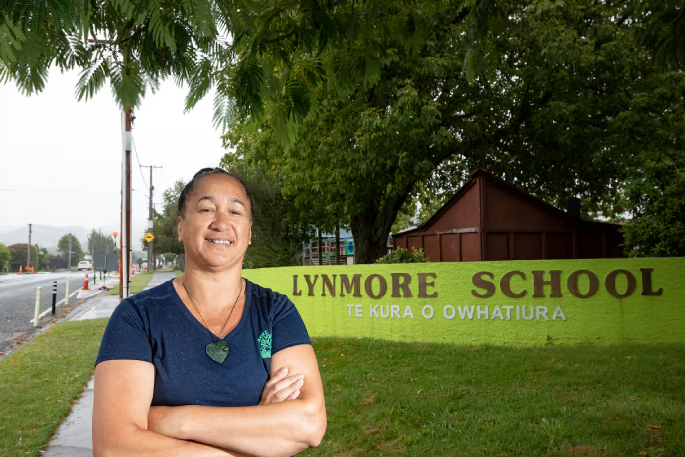The current Government’s plan to bring forward changes to the New Zealand math curriculum has some Bay principals expressing “deep concerns”.
This month, Prime Minister Christopher Luxon announced a new structured maths curriculum for primary and intermediate school children, which included extra professional development for teachers, interventions for children struggling with the topic, and twice-yearly assessments, would kick off at the start of 2025.
The Rotorua Principals’ Association says in a statement the curriculum change was implemented at an “alarming” pace and placed “undue strain” on schools and educators.
The principals’ statement says the government’s deadline for the changes did not adequately consider the practical challenges faced by schools, particularly in rural areas, and that they believed the demands for extensive professional development and curriculum adjustments lacked the necessary support.
“We recognise the importance of evolving our education system to address the needs of all students, however, the current timeline for these changes is unrealistic.”
Education Minister Erica Stanford says she acknowledged there had been a lot of changes in the nine months and there would be more to come because results needed to change.
Hinei Taute, Rotorua Principals’ Association president and Lynmore Primary School principal, told NZME most schools in the Rotorua region had already developed their strategic plan for 2025 and leaders would now need to take extra time to consider the new curriculum.
With a shortage of relief teachers nationwide, Hinei says “it’s not unusual” for principals to step in and teach classes weekly, fortnightly or monthly, depending on the school, impairing their ability to lead effectively and manage curriculum changes collaboratively with their staff.
“If you really want to make a good shot of implementing a new curriculum, you need the time and the resources to work with your teachers.”
Hinei says she believed the data used to justify the changes was misrepresented and, in her view, that created a sense of crisis that did not accurately reflect the realities within many schools.
In an article published by RNZ, the data was revealed to be taken from a small sample of students and was measured against the 2023 draft of the new maths curriculum that has yet to be introduced in schools.
Western Bay of Plenty Principals’ Association executive president and Ōmokoroa No 1 School principal Craig Pentecost says it was less common for principals in Western Bay to stand in as teachers due to the larger sizes of schools.
But Craig says he had concerns around staffing levels and a lack of applicants for full-time positions, with “big challenges” ahead next year.
 Tauriko School principal Suzanne Billington pictured in 2021. Photo / George Novak.
Tauriko School principal Suzanne Billington pictured in 2021. Photo / George Novak.
Tauriko School principal Suzanne Billington says the adapted curriculum had a “very tight turnaround”, and educators took about two years to adapt to a new curriculum.
“My concern would be that the professional learning is in place for school leaders in maths,” she says.
The government would need to continue providing teacher-only days for the refresh and provide those dates “quite quickly” so school leaders could understand the changes.
“We need to have a deep understanding of how the new curriculum is structured, what that means for our existing practice, and how we will adapt to enhance what we’re doing,” Suzanne says.
Education Minister Erica Stanford says the “Make it Count” maths action plan would help turn around the current level of achievement so children were equipped with the “knowledge, skills and competencies” they needed.
“I have heard loud and clear from the sector it is not delivering the right service, to the right child, at the right time,” Erica says.
“For too long, teachers have been let down by a system that is not clearly focused on the things they need to make a difference at the frontline. For our kids to get a world-leading education, our teachers need to get world-leading training and professional development.”
Erica says the government would work with providers to support teachers making this change, including introducing teacher guides and student workbooks in classrooms across New Zealand, and shifting $20 million to become available for professional development in maths.
The Teaching Council will strengthen the maths component for student teachers, and Cabinet will soon consider a work programme with priorities of targeting effective learning support interventions for students with additional needs.
Erica says she was also establishing a reference group to support this work alongside ongoing engagement with sector reference groups.
Prime Minister Christopher Luxon says new data from the Curriculum Insights and Progress Study showed that last year about 50,000 children in Year 8 did not meet the expected benchmark for maths.
“There’s no way to describe those results as anything other than a total system failure,” says Christopher.



1 comment
Good and positive change...
Posted on 26-08-2024 13:36 | By groutby
...is ahead of those who want to increase standards and who wouldn't?
Rather disappointing to read that there could be such a length of time to 'adapt' to the new curriculum....perhaps I am wrong but it does seem to me that if the right teachers are keen and enthused to lift maths standards for the students, then that in itself would lift enthusiasm for teaching it and seeing the rewards in achievement....surely has to be a 'win win'....maybe this is a crossroads for some staff to decide if they want to be doing the same thing and get the same results, or get on board and help kickstart our flailing education standards....
Leave a Comment
You must be logged in to make a comment.